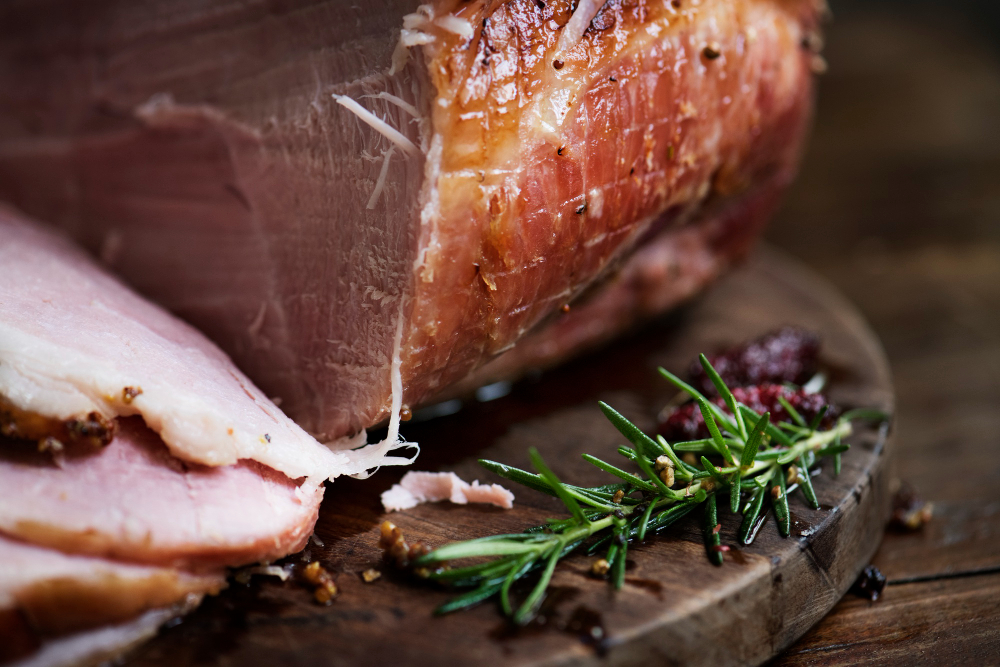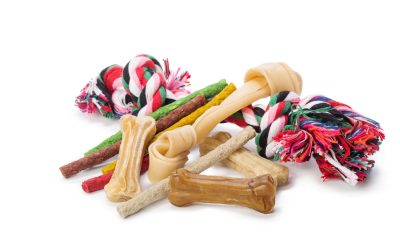Can Dogs Eat Ham?

Ham is a popular, tasty treat for many people, and it’s easy to see why our dogs might be tempted by its smell. However, before offering your furry friend a slice, it’s essential to understand the risks associated with ham and why it may not be the best choice for your dog. Ham seems like a harmless snack but can pose several health concerns for your pet. Let’s explore why ham might not be a suitable treat and discover healthier alternatives to keep your dog happy and safe.
Why Should You Avoid Feeding Ham to Dogs?
While ham’s savory aroma might attract your dog, it’s important to consider its nutritional content and how it affects their health. Dogs have specific dietary needs, and certain foods, like ham, can cause more harm than good.
High Sodium Levels
Ham is high in sodium, which can be harmful to dogs. Excessive sodium intake can lead to dehydration and even sodium ion poisoning, causing symptoms such as vomiting, lethargy, and excessive thirst. Since dogs process sodium differently than humans, their kidneys may struggle to handle the excess, potentially leading to long-term health issues like kidney damage.
Preservatives and Additives
Many commercially prepared hams contain preservatives like nitrates and nitrites, which can be toxic to dogs in large amounts. These additives have been linked to health concerns such as digestive issues and even certain cancers. If you’re looking for a safe treat, avoiding foods containing these potentially harmful chemicals is best.
High Fat Content
Ham is also high in fat, which can contribute to obesity and other serious health issues in dogs, such as pancreatitis. Pancreatitis is a painful and potentially life-threatening condition that can require extensive veterinary care.
Choking Hazards
The texture and shape of ham can pose a choking hazard, especially for smaller dogs or those that tend to eat quickly. Always be mindful of the size and texture of any food you give your pet to avoid accidental choking.
What About Other Types of Ham?
Ham generally carries the same risks whether cooked, smoked, or cured due to its high sodium and fat content. Even small amounts can upset a dog’s digestive system or contribute to longer-term health issues. Therefore, it’s best to avoid offering any form of ham to your pet.
Can Puppies Have Ham?
With their developing digestive systems, puppies are especially vulnerable to the risks associated with ham.
Healthier Alternatives to Ham
Plenty of healthier options are available if you’re looking for a tasty snack to share with your dog. Consider treats made specifically for dogs, formulated to meet their nutritional needs without the added risks of high sodium or fat. Lean, cooked meats like chicken or turkey (without seasoning) can also be a good alternative in moderation.

How Can Pet Insurance Help You if Your Dog Needs a Treatment?
Pet insurance can be a valuable tool in managing the costs of treating a dog’s veterinary expenses. By having a pet insurance policy in place, you can have peace of mind knowing that you can provide medical care for your furry companion without worrying about the financial burden. Pet insurance can help cover the costs of veterinary consultations, diagnostic tests, medications, and even specialized treatments if required.
Reimbursement
This method is the most common for pet insurance companies. You pay out of pocket for the veterinarian bill, and then the insurance company reimburses you for what’s covered under the insurance plan. The steps look like this.
- You pay the vet bill after your dog’s visit.
- You fill out the pet insurance claim form.
- Submit the claim form and other required documentation to the insurer.
- After the claim is approved, you will be reimbursed for eligible expenses.
What Does Odie Pet Insurance Cover?
Pet insurance covers various veterinary expenses, providing financial protection and peace of mind for pet owners. Here are the details of the coverage options offered by Odie Pet Insurance:
Illness & Injury Plan
The Illness & Injury Plan is an all-inclusive insurance plan designed to cover a wide range of medical needs for your pet. This plan includes comprehensive coverage for various illnesses, injuries, and veterinary services. Some of the covered items include:
- Veterinary exams and consultations
- Diagnostics (e.g., X-rays, lab tests)
- Prescribed medications
- Surgeries and hospitalization
- Rehabilitation, acupuncture, or chiropractic treatments
- Medically necessary supplies
- Euthanasia and cremation
The Wellness Plan
The Wellness Plan is a monthly membership that focuses on preventive care and covers routine veterinary services.
- Provides reimbursements for routine care items such as wellness visits (exams and vaccines), testing and parasite prevention, dental cleanings and at-home dental care, vitamins, supplements, and more.
- Through Odie’s partnership with Petivity, a leader in smart pet products and proactive care, Wellness Plan members can also receive reimbursements for Petivity devices and health kits, as well as eligible Purina food and supplements.
- Total reimbursement up to $700 per year.



